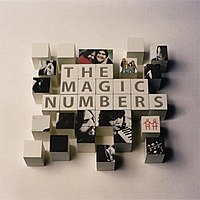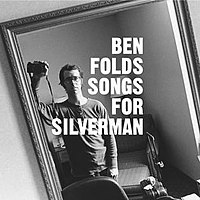To end another wonderful decade of great music, I’m going to write about ten albums from each of the last ten years, that are either great, or hold some sort of personal significance. A musical kiss off to 00s.
2005 – #7. The Magic Numbers – The Magic Numbers
(Heavenly)

Ok. An album from 2005 someone might have actually heard. I’d like to think I wasn’t being obscurist in 2005. I had just zoned out, and tuned into my own little world for a bit. In fact, I had very few means of new music getting to me. Old man records in Mojo, the always great recommendations from a bunch of trusted friends, and around this time, a wee radio show called the Bug Eyed Highway that I did with my friend Sarah Goodes. And it’s from that radio show that I discovered the self titled debut by the Magic Numbers.
The Bug Eyed Highway was a country/roots rock show on FBi. I’m pretty sure no-one cared about what we did. We felt pretty out of the loop from the station. The only contact we had from anyone who worked there was in our pigeon hole, where it seemed like anything that had a guitar that someone else didn’t want would go into our pile. We’d get reggae records. And anything that might actually be relevant, say, the new Neil Young record, never got to us. So we did our thing and it was great.
But we did try to fit in, and this album was one of those times. It was on the playlist. It was a very FBi record, and one of the few we figured that might have a track that wouldn’t make our show explode. Amazing then, to think the track we played was Which Way To Happy. A good track but by no means a highlight. It just had a Neil Young-ish rhythm to it.
I listened to some of the other tracks and liked them. Friends of mine loved them, and to complete the trifecta…Mojo magazine loved them too. So I gave it more time than any album the NME wrote about in years.
But it wasn’t until a lot later that this record really got me. By then, hit singles had come and gone and passed me by. Then, I See You, You See Me was released as a single, and the band toured (playing BDO). I was wowed by that song, the tour and the Robert Doisneau-y film clip.
The album opened up pretty quickly after that. By the time of their BDO sideshow I had even bought a T-shirt.
There’s something about innocence in music that I love. All that Jonathan Richman type stuff. A simplicity. And the Magic Numbers captured that, and wrapped it all up in warm boy/girl harmonies and some very sweet guitar playing (and bass playing).
Delights are plenty and I’m sure they are written about in many more reviews on the internet. Morning’s Eleven, Forever Lost, Don’t Give Up the Fight, etc. And it’s so dramatic – some teen heartbreak drama going on here. But somehow they can make a line like “I would die for you” sound sweet and not, frankly, absolutely shit.
I could probably lose a couple of songs of this album and not be too fussed. And the follow up, Those the Brokes, had only a handful of good songs. So this is has ended up being one of those time-and-place albums for me. But it was a good time and place, and hopefully their new album this year can bring back some of that… magic.









